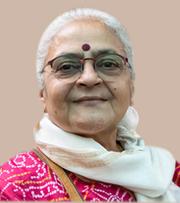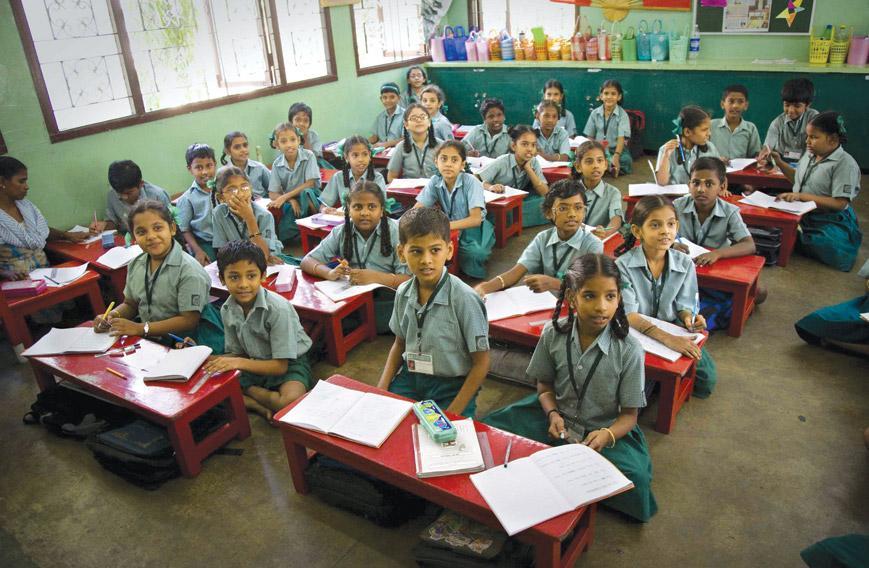
VIMALA RAMACHANDRAN
The CEO of Apple, Tim Cook, recently said that the “number one reason why we like to be in China is the people. China has extraordinary skills… the depth of highly skilled labour in the manufacturing space….”
The apologists in India point to the IT boom of the 1990s and the export of thousands of IT professionals or doctors and nurses. What they fail to see is that the majority of our students are not able to develop higher order thinking or technical skills that can indeed propel our economy and transform our society.
The sad reality is that our school education system is a liability, not only to the country but to the majority of our children going through it and emerging with little hope. When global industry leaders say that they are not able to set up sophisticated industries because of the huge shortage of highly skilled people or when our industry complains of the non-availability of skilled professionals, we are outraged.
Our education system is in crisis and this is universally acknowledged. Notwithstanding credible evidence from both official as well as unofficial research that points to poor learning and low accountability, leading to a broken system, we in India are resisting overhauling the school education system.
The purpose of education is not only to prepare our children to face the world with confidence, skills and courage but to also give them the knowledge and skills to be innovative, find work and improve their lives. Confusing education with degrees and certificates, we are today not able to tap the innate intelligence, creativity and potential of our children, and give them a better chance in life.
Most of our higher education, vocational education and technical education institutions are considered sub-standard. When teacher education was privatized in 2003-04, thousands of degree imparting shops came up – leading to a huge drop in the quality of our teaching cadre. And, more interestingly, when we tried to regulate the quality of teacher intake through Teacher Eligibility Tests, a majority of the candidates failed.
Where does the basic problem lie?
It effectively boils down to what is happening in our schools. Time and again, researchers and practitioners have pointed to the critical importance of foundational skills: basic reading, writing, comprehension, grasp of fundamental concepts in mathematics and science, and the ability to critically reflect and think.
The fact is that there is something fundamentally wrong with our school education. An examination system that tests memorization, the accent being on remembering and reproducing facts, and the neglect of the ability to read and write with comprehension (multiple choice questions is the norm) end up dictating what happens in our school system. The focus is on completing the syllabus, without ensuring all children in a given class or group are actually following what is being taught.
At the same time, we are grappling with huge numbers, enormous diversity and a mindboggling array of aspirations of children and their families. Therefore, when we decided to privilege numbers over quality since the 1960s, we ended up creating institutions that accommodate the numbers.
Most countries that were able to transition into industrialized societies (China, South Korea, Vietnam, etc) strengthened their school system by ensuring every child learns and acquires the required knowledge and skills. These were important national goals. They did not stop after achieving desirable school enrolment figures. Equally significantly, they built different types of post-secondary educational opportunities: higher education, technical education, vocational education, para-professional education, liberal arts, pure science and so on.
Having engineering colleges alongside high-quality technical training institutions was seen as being important. And this gave people opportunities to access different kinds of technical education. Similarly, medical colleges went hand in hand with institutions that provide training in nursing, to medical technicians, in bio-chemistry, pharmacology and so on. Pure science propelled and strengthened research and development not only for industry but in a wide array of fields. Many European countries provide multiple entry and exit options, so that if a person decides to seek the vocational stream and then changes her mind, there are pathways through which she can come back to formal higher education.
In India the hegemony of medicine, engineering and formal higher education has been quite apparent. We have just not thought about or planned for high-quality vocational education in different fields – engineering, medicine, handicrafts/handlooms, textile, hospitality, services and so on. Our industries, our bureaucracy, our police and para-military forces, our medical and educational system need people with different kinds of expertise and skills.
Everyone does not need a formal BSc or BA or BTech or MBBS. What we need is to build a system where, when children leave school, they are confident about their basic knowledge and skills (what the Draft NEP of 2019 calls foundational skills); and, depending on their aptitude, grasp of higher-order thinking skills and economic situation, young people can choose from a wide array of post-secondary educational opportunities. More importantly, if they feel they made the wrong choice, the education system needs to provide a second chance through multiple entry and exit options.
The COVID-19 pandemic has exposed our warts and fissures. It has turned the spotlight on so many gaps in our education system, medical establishment, agriculture, industry and overall community-level ability to manage such a complex situation. It also gives us a unique opportunity to turn public knowledge of our weaknesses into an opportunity to restructure and reform. The education system is one space where such reform can be initiated. This is bound to have a positive ripple effect on the rest.
As we in India struggle to re-start our economy and dream about becoming the next industrial hub of the world, there is an urgent need to go back to the drawing board and restructure and reform school education. This has to be the starting point.
Comments
Currently there are no Comments. Be first to write a comment!




